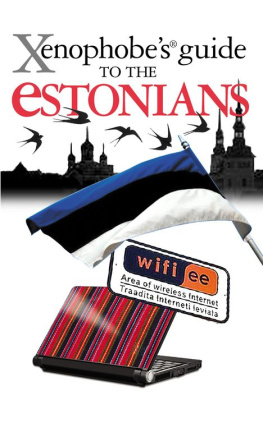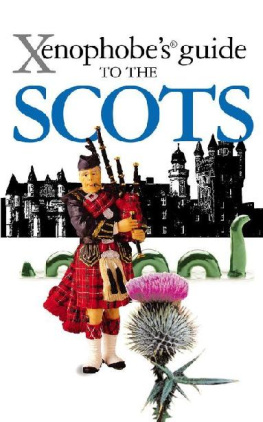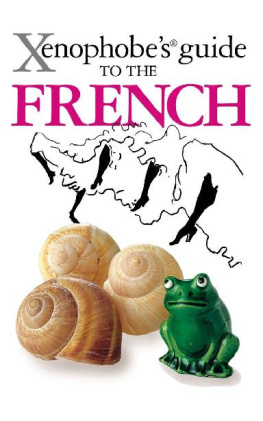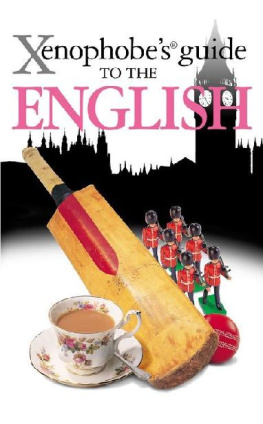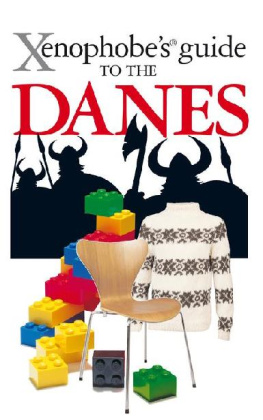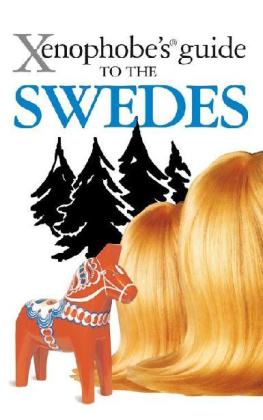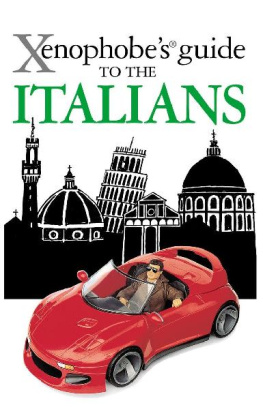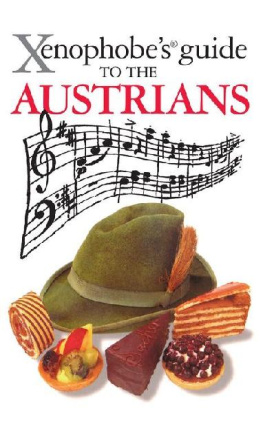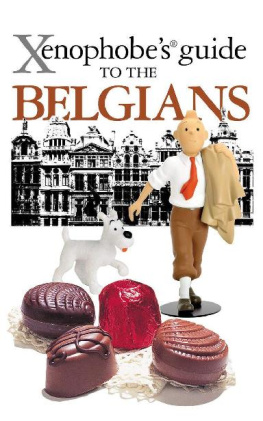Rodney Bolt - The Xenophobes Guide to the Dutch
Here you can read online Rodney Bolt - The Xenophobes Guide to the Dutch full text of the book (entire story) in english for free. Download pdf and epub, get meaning, cover and reviews about this ebook. City: London, Netherlands, Netherlands, year: 2012, publisher: Xenophobes guides;Oval Projects, genre: Home and family. Description of the work, (preface) as well as reviews are available. Best literature library LitArk.com created for fans of good reading and offers a wide selection of genres:
Romance novel
Science fiction
Adventure
Detective
Science
History
Home and family
Prose
Art
Politics
Computer
Non-fiction
Religion
Business
Children
Humor
Choose a favorite category and find really read worthwhile books. Enjoy immersion in the world of imagination, feel the emotions of the characters or learn something new for yourself, make an fascinating discovery.
- Book:The Xenophobes Guide to the Dutch
- Author:
- Publisher:Xenophobes guides;Oval Projects
- Genre:
- Year:2012
- City:London, Netherlands, Netherlands
- Rating:5 / 5
- Favourites:Add to favourites
- Your mark:
- 100
- 1
- 2
- 3
- 4
- 5
The Xenophobes Guide to the Dutch: summary, description and annotation
We offer to read an annotation, description, summary or preface (depends on what the author of the book "The Xenophobes Guide to the Dutch" wrote himself). If you haven't found the necessary information about the book — write in the comments, we will try to find it.
Rodney Bolt: author's other books
Who wrote The Xenophobes Guide to the Dutch? Find out the surname, the name of the author of the book and a list of all author's works by series.
The Xenophobes Guide to the Dutch — read online for free the complete book (whole text) full work
Below is the text of the book, divided by pages. System saving the place of the last page read, allows you to conveniently read the book "The Xenophobes Guide to the Dutch" online for free, without having to search again every time where you left off. Put a bookmark, and you can go to the page where you finished reading at any time.
Font size:
Interval:
Bookmark:


The Dutch population is 16.5 million compared with 5 million Danes, 5 million Scots, 10 million Belgians, 41 million Spanish, 52 million English, 62 million French, 82 million Germans and 307 million Americans.
The Netherlands is half the size of Scotland, not quite as large as Denmark, and could fit into Spain 12 times.
The Dutch character is inextricably bound up with the Dutch landscape. The Netherlands is so flat that even the black and white cows stand silhouetted against the skyline. Consequently the Dutch are used to distant horizons and lots of light. Openness, freedom and vision are fundamental. Few Dutch people could be happy living in a forest. When one of the Netherlands most famous novelists sent his parents on their first trip to Switzerland as a present for their 50th wedding anniversary, he was disconcerted to discover that they had returned home after only a day or two. His mother had been bitterly disappointed. She had no view from her hotel window, she explained, there were mountains in the way.
The Dutch landscape is mild and uneventful. Intrusions, such as trees, occur in orderly lines.
The Dutch landscape is mild and uneventful. Intrusions, such as trees, occur in orderly lines and patterns. Water, which threatens to overrun the whole country, is neatly channelled into straight canals. Control and moderation are important in behaviour too. High trees catch a lot of wind, the Dutch warn. They describe excess in terms of overvloed, a flooding over as if the waters had burst the dykes. In the Netherlands, extravagant people dont waste money, they spill it.
The Dutch pride themselves on their tolerance and flexibility: qualities which, in addition to carrying moral kudos, are good for business.
The Netherlands is light, but not bright a world of greens, greys and browns. This colour scheme is repeated in the cities, where buildings are mainly ofbrown brick, and local bye-laws often state that residents must paint their front doors in the same shade of green. When Van Gogh forsook his native country for the brighter, bumpier regions of the south of France, he left off painting in the cosy, gravy browns of The Potato Eaters, took to gaudier hues, and went mad.
From the comfort of their immaculate sitting rooms the Dutch may acknowledge that they are the cleanest people on earth, are thrifty, have a canny head for business, an unparalleled facility with languages, an unequalled ability to get along with one another and an inimitable charm. But they will be far too modest, unless pushed, to admit publicly that all this makes them somewhat superior to other nations.
Above all, the Dutch pride themselves on their tolerance and flexibility: qualities which, in addition to carrying moral kudos, are good for business. The blanket of benevolence is not a woolly liberal one, but is woven from the sound stuff of commerce. It is quite thick enough to cover niggling inconsistencies, such as a secret mistrust of Moroccans, distaste at alien cooking smells from the apartment downstairs, or fury at foreigners who wobble inexpertly on bicycles, blocking the way for others.
Most nations regard the Dutch as organized and efficient rather like the Germans, but not as awesome. One can hardly be frightened, the reasoning goes, of a nation of rosy-cheeked farmers who live in windmills and have clogs at the bottom of the wardrobe, tulips in the garden and piles of round cheese in the larder.
Most nations regard the Dutch as organized and efficient rather like the Germans, but not as awesome.
But the Dutch also have a reputation for being opinionated, stubborn, and incorrigibly mean. The Belgians go even further, and complain that their neighbours are downright devious in business affairs. Generally, though, other nations see them as forthright to a fault. Dutch frankness completely overwhelms more reticent peoples such as the Japanese who find the Dutch the rudest and most arrogant of the Europeans they do business with though they are impressed by Dutch acumen as traders. Where a Dutchman has passed, not even the grass grows any more, say the Japanese.
In the 17th century an English pamphlet raged: A Dutchman is a Lusty, Fat, Two-legged Cheeseworm.
The English survey the Dutch with guarded approval, as the closest any Continentals come to the sacrosanct state of being English. Such chumminess has not always prevailed. In the 17th century these two seafaring nations were at each others throats. An English pamphlet raged: A Dutchman is a Lusty, Fat, Two-legged Cheeseworm. A Creature that is so addicted to eating Butter, Drinking Fat and Sliding [skating] that all the world knows him for a slippery fellow. The English language gained a whole new list of pejoratives, including Dutch courage (booze-induced bravery), Dutch comfort (things could be worse) and Dutch gold (fake). Nowadays there is an echo of this attitude in the tendency of some people (especially customs officers) to see the Dutch as a nation of drug-dazed pornographers . But on the whole the Dutch score top marks for cabling BBC television to every home in the land and speaking English without flinching or causing much of a flinch.
The Dutch would like to be held up as The Ultimate Europeans. To this end they have assiduously assimilated so much from the nations around them that they have almost done away with their own cultural identity . This means that most people find something familiar about the Dutch, which guarantees that everybody likes them.
Most people find something familiar about the Dutch, which guarantees that everybody likes them.
That the Netherlands is the small boy in the class of Europe doesnt unduly bother either its residents or its politicians. By making enough noise and having an opinion about everything, even a small boy can be noticed. With luck he might even become class captain a job that, with his insiders knowledge of unfairness and oppression, he knows he can do more justly than some other class members he might care to mention. Especially those with a history of bullying.
Despite the fact that they have for centuries been edging their country towards the British Isles, the Dutch feel ambivalent about the British. They are surprised that these rather puny islanders, who clam up when one talks to them about sex, somehow manage to write such good books. They also see the English as cottagey and a bit twee, but adore their Marks & Spencers underwear and are amazed that such an uptight nation could produce such elegant and practical designs. In some circles, English style is viewed as the ultimate chic. Tweeds, waxed jackets and pinstripes are sported by the discreetly rich, and those who aspire to that status.
Forthrightness may be a virtue, but extravagantly flaunting your emotions smacks of lack of control.
Like most of their European neighbours, the Dutch lap up the trappings of American culture, while dismissing its perpetrators as being empty-headed and loud. Road movies, especially, appeal to the Dutch sense of freedom and openness. The lost hitchhiker look is a popular Dutch fashion.
France and Italy may be suitable places to holiday, but the Dutch view their inhabitants with a twinge of disapproval. The French are too frivolous to win the lasting admiration of a nation that has Calvin in its bones, and besides, say the Dutch, they are obstructionists with no skill at negotiation. A nation that allows its farmers to pile turnips on the motorway must be viewed with some scepticism.
Font size:
Interval:
Bookmark:
Similar books «The Xenophobes Guide to the Dutch»
Look at similar books to The Xenophobes Guide to the Dutch. We have selected literature similar in name and meaning in the hope of providing readers with more options to find new, interesting, not yet read works.
Discussion, reviews of the book The Xenophobes Guide to the Dutch and just readers' own opinions. Leave your comments, write what you think about the work, its meaning or the main characters. Specify what exactly you liked and what you didn't like, and why you think so.



